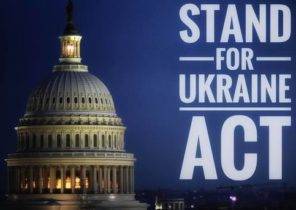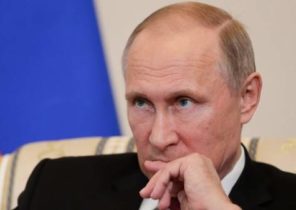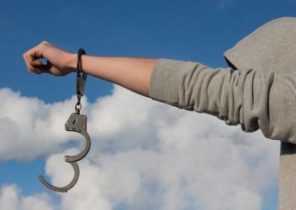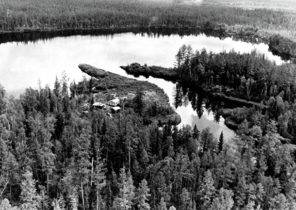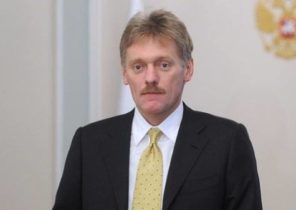
MOSCOW — the Economic agenda of Russia promises surprises next year — the authorities ahead of the presidential elections will prefer to gloss over the problems and will continue to avoid unpopular decisions, and the main risk will be the weakening of the budgetary policy against the background of growing oil prices and the desire to energize economic growth and to reassure the electorate, economists say.
Analysts fear that the Ministry will not be able to restrain government spending in 2017, and solutions that would help to balance the budget, wait for after 2018.
Weakened by sanctions, the Russian economy has fallen for the second consecutive year, investments in fixed capital and real incomes of the population — the third. In 2017 the government expects renewed growth in the range of 1.0-1.5%.
“Routine economic with the political livening up” — describes the following year the head of regional programs of Independent Institute for social policy Natalya Zubarevich, calling it a year of “further degradation”.
“The closer the election, the more all sorts of great projects. Waiting for work on new initiatives for uplifting the image of the national projects, but since money is almost no, there’s always the usual budgetary expenditures to identify as something spiritually uplifting”.
THE CANDIDATE FOR THE WEAKENING OF THE
The deal OPEC and raised following this, oil prices may bring the budget in 2017, an additional order of a trillion rubles, said Finance Minister Anton Siluanov.
Prime Minister Dmitry Medvedev at a meeting with party activists of “United Russia” has promised that the surplus would be spent on priority areas. According to Siluanov, the decision will be “somewhere in between” — part of the additional revenues will be allocated for expenses and the other will be used to reduce spending of the Reserve Fund, which is financed from the budget deficit.
“A visible risk is that the consensus that was built around the Ministry of Finance the freezing of costs, becomes more fragile,” — says Alexander Isakov, from VTB Capital, according to which, at Urals price $ 55 in 2017, the budget will additionally receive about 1.3 trillion rubles.
The budget is reviewed easier in the direction of increasing costs, says Isakov, and attempts to reduce them have always met with resistance.
In 2016, with declining revenues due to low oil prices, the Ministry of Finance planned to reduce costs, but in the end they grew primarily because of increased spending on defence the government decided to close the debt defense companies to banks.
Economist at Alfa Bank Natalia Orlova expects cost increases of 5.0% in 2017 compared with 2016, the oil price of $50, which in turn will create new inflation risks.
“Fiscal policy seems a natural candidate for the weakening in conditions when the economy cannot return to growth trajectory and monetary policy is limited by external factors — rate of the fed,” said Orlov, also noting the tendency of growth of social spending before the election.
Another factor in favour of increasing social spending — a rapidly increasing percentage of Russians living below the poverty line, the number of which increased from 2014 to 22 with 16 million people. However, financial support next year will not be enough to reverse the trend of deteriorating living standards in the long term, say analysts at Alfa Bank.
The rise in oil prices could prompt the Kremlin to increase social spending ahead of presidential elections in 2018, says economist BCS Vladimir Tikhomirov.
“I do not exclude that in second half of next year, closer to the presidential election some additional indexation of wages possible. Although I don’t expect it to be very significant, perhaps on the level of expected inflation next year, that is around 4-5%”, — said Tikhomirov.
He predicts that the budget deficit next year will be less than provides government, 1.8% of GDP with oil at $ 55.
The budget for the next three years calculated on the basis of forecast oil price of $ 40 per barrel and provides for the freezing of spending at the level of 16.0 trillion and reducing the deficit from 3.2% of GDP in 2017 to 1.2% of GDP in 2019.
If the Ministry of Finance will not be able to restrain government spending, it will create the risk of increasing deficit in the medium and long term and further growth of debt burden, warns Alexandra Suslina of the Economic expert group.
Next year to cover the hole in the Treasury, the Ministry of Finance increases more than doubled net borrowing on the domestic market.
“The fiscal rule will work only after 2019, respectively, we have no restrictions. And if suddenly it turns out that income will be more, there must be political will, these revenues do not spend, as the pressure will be strong,” — said Suslina.
Finance Minister Siluanov promised not to relax in reducing the deficit:
“We will reduce the unbalance, to adjust its costs under the opportunities that we have. In any case, here we cannot be complacent, bearing in mind that we need to pass a difficult three-year period, and then we can talk about building up any costs, building supportive infrastructure of human capital”, — said the Minister at the end of December.
LIFE AFTER THE ELECTION
President Vladimir Putin in the next year to make a choice from a wide menu of economic measures, some of which may come into his electoral programme, however painful the decision will be postponed until after the election.
In the beginning of the year Putin called the former Minister of Finance, consistent criticism of government policy Alexei Kudrin to write the development strategy of the Russian Federation for the next presidential term — 2018-2024 years. The strategy should be ready by may.
In the message to the Federal Assembly in December, Putin also told the government until may to write the reform plan, the implementation of which will ensure the economic growth rate above the world.
According to Tikhomirov, the fact that this year the government or otherwise publicly discussed raising taxes and the retirement age, tells about the desire of the authorities to prepare the population for the inevitability of such decisions.
“Most of the reform involves unpopular measures. The bias in favor of social spending, which has grown very strongly over the last 10 years, and any attempt to balance the budget will face on unpopular measures”.
“Before the election, nobody will come and say, let’s raise taxes, go vote. After the elections the situation may change,” — said Tikhomirov.
Putin in the message to the Federal Assembly instructed the government by the end of next year to prepare proposals on adjusting the tax system. Tax innovations should work since 2019.
“Without an increase in major taxes is not enough. After 2018 are more likely to increase VAT. Personal income tax are less likely but also possible,” says a source close to the Ministry of Finance.
The longer uncertainty remains as to the tax structure, the larger the total loss in entrepreneurial activity, warn Isakov and Suslin.
“The situation clearly to everyone — not only for professionals but also for the authorities — becomes quite critical in the medium term. The population is aging, the burden on the budget related to support of pensioners is growing and will grow. This will force the government, on the one hand, to try to build up reserves as a safeguard against future crises and to try to somehow balance the economy and make it less vulnerable from external factors,” — said Tikhomirov.
Zubarevich notes that implementation of the reforms will depend on political will, but suggests that even after the elections, all measures will be mainly of a fiscal nature that will fall on the shoulders of the population and business.
“You can come up with any sort of program, but then begins the question of political will, but political will is born when there is an incentive. Question — what are the government incentives? To sit as long as possible or to accelerate the development of the country? The answer is a balance, because the decaying country to rule, harder and harder,” said Zubarevich.
“But if you weigh in the balance the two weights, of course, pulls — to keep themselves in power as long as possible. Therefore, some repairs are economic, but not the foundations of the current political and economic system.”

